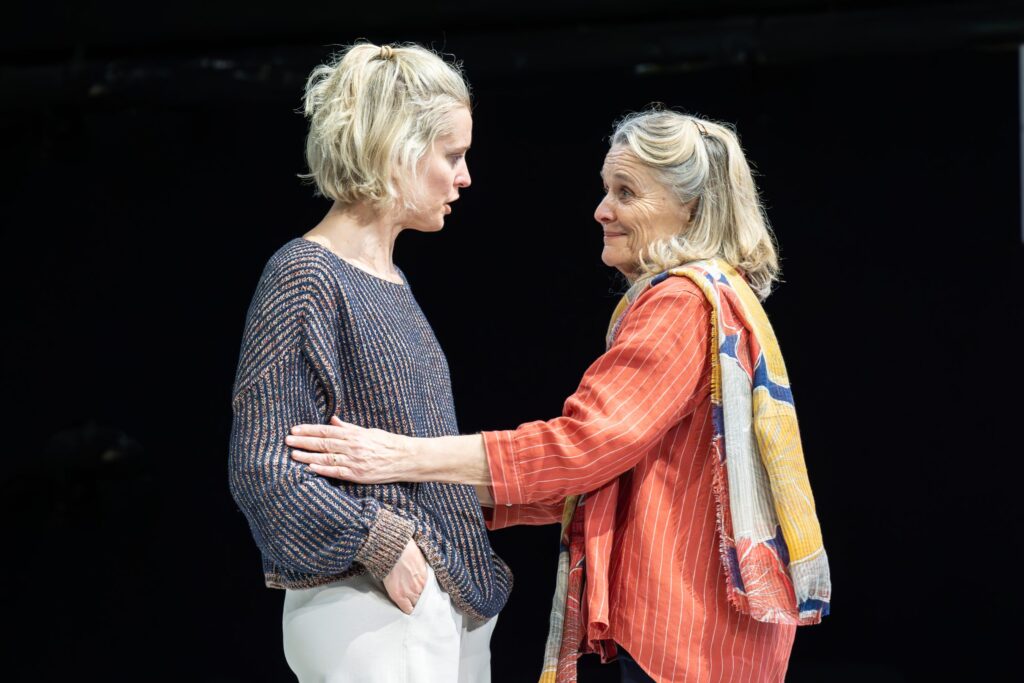Trafalgar Theatre – until 10 August 2024
Reviewed by Claire Roderick
5*****
Duncan Macmillan’s devastating play about addiction and recovery returns to the West End with Denise Gough reprising the role of Emma with an incredibly raw and mercurial performance.
After slurring her way through a performance of The Seagull and having an onstage breakdown, Emma checks herself into a rehab programme. Unwilling to take part in and engage in group sessions, Emma questions the methodology and psychology of the recovery programme, trying to antagonise the doctor and therapist at every opportunity. Emma is only comfortable when she is playing a role, and her interactions with her fellow patients and medical staff are built on lies and concealment of her true character. As she spins stories that evoke sympathy and glimmers of understanding about why she became an addict, the rug is pulled from under the audience as she angrily rails against the process and pivots on what is actually true. Gough is slippery and believably unstable as Emma bulldozes her way through recovery. Her physicality is breathtaking as Emma’s darkest moments are played out, and she nails the charm, cajoling, anger and desperate selfishness of addiction.
As Emma insists that addiction is a response to the chaos and violence of the world, the other members of the group share their stories. Macmillan slows the pace during the group scenes, emphasising the repetition and slow progress of recovery, embodied perfectly by Emma’s reactions as she sits looking bored and frustrated.
In the second act, Emma’s journey to recovery seems to be on track as she becomes a more active and invested member of the group, but is she still playing a role to fool others, or to fool herself as everyone around her willingly lays themselves and their actions bare before the group? Macmillan sets up the bleak final scene expertly with the wonderful Sinéad Cusack and Kevin McMonagle playing the therapist and fellow patient “rehearsing” the difficult conversation she needs to have with her parents and responding generously and warmly. In the final scene they play Emma’s parents, who have lived through her addiction, lies and violence and don’t react as she would hope. The shocking information revealed in this scene makes their responses perfectly understandable and acknowledges the devastation addiction wreaks on family and relationships. With committed and compelling performances from the entire cast, Bunny Christie’s clinical white tiled set is a triumph containing the chaos and out of control lives depicted on stage under Jeremy Herrin’s dynamic direction.
People, Places & Things is not an easy watch. It is uncomfortable, exhilarating and darkly funny – with a stellar central performance that is simply magnificent. Unmissable.

